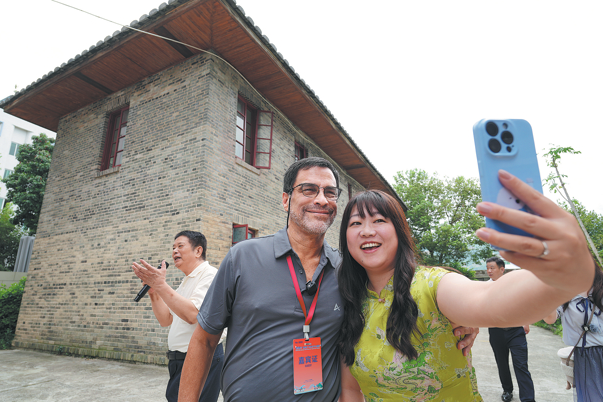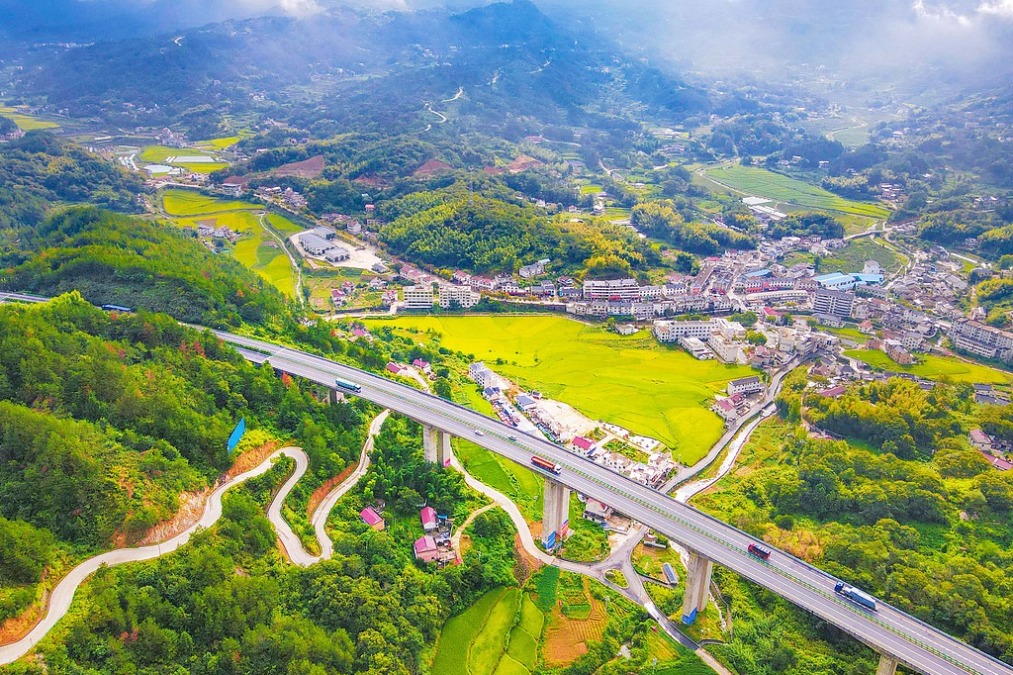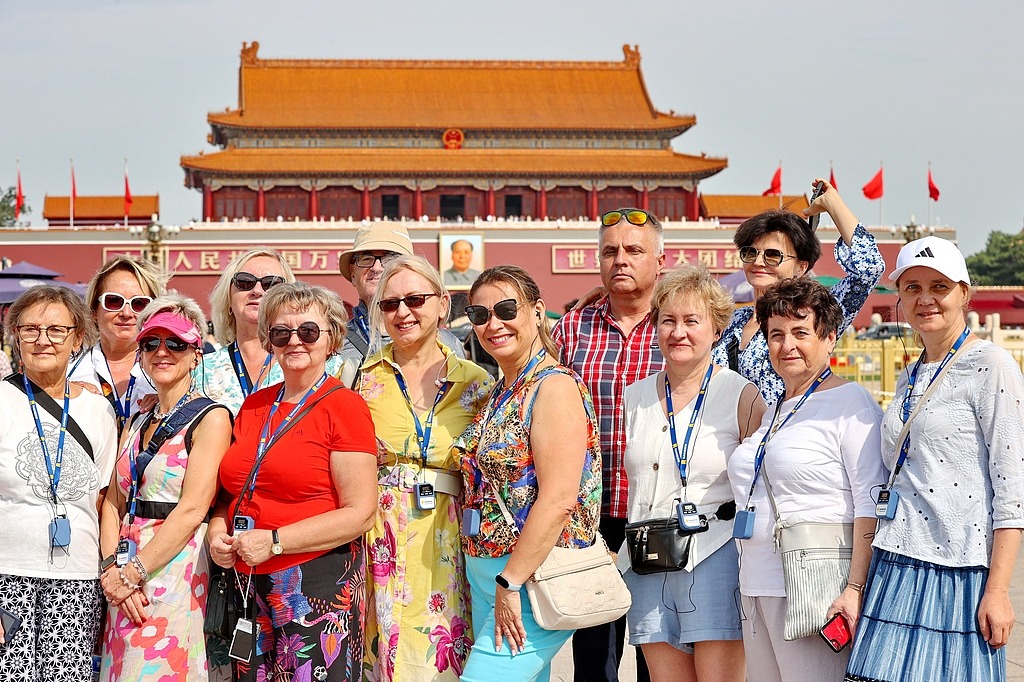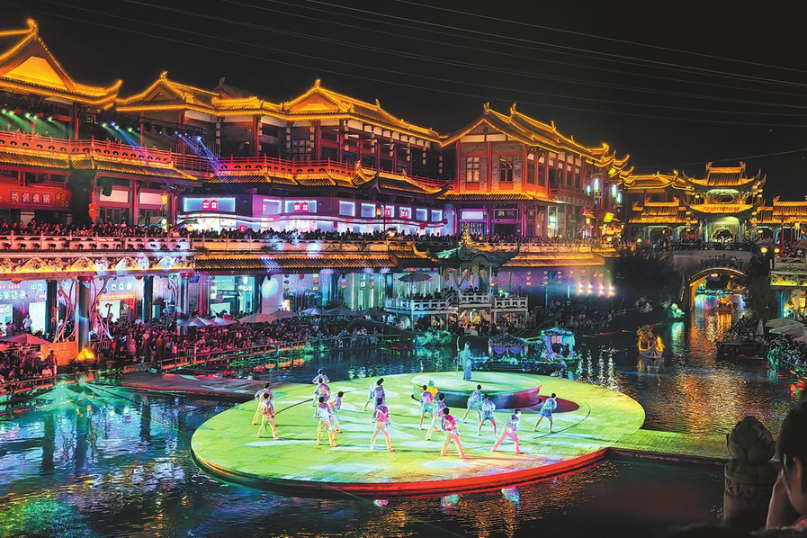Japan scholars scold war-linked shrine visits over fostering militarism
Xinhua | Updated: 2024-08-16 16:24
TOKYO - While the world observes the anniversary of Japan's unconditional surrender in World War II (WWII) on Aug 15 every year, some Japanese politicians would openly visit the controversial Yasukuni Shrine, a symbol of Japanese militarism and its wartime aggression.
This year, Japan's incumbent defense minister was found among the senior officials visiting the notorious shrine, and Japanese scholars warned that amid the government's efforts to enhance military capabilities, the Yasukuni Shrine is contributing to the revival of Japan's militaristic past.
In January, Hiroki Kobayashi, deputy chief of staff of the Japan Ground Self-Defense Force (SDF), led dozens of SDF members in a collective visit to the shrine riding in an official vehicle. In April, retired Maritime SDF Admiral Umio Otsuka was announced as the 14th chief priest of Yasukuni Shrine, the highest religious position at the shrine.
The bond between the SDF and Yasukuni Shrine is strengthening with activities such as group visits by Maritime SDF trainees to the shrine's war-memorial Yushukan museum.
On Thursday, Japanese Prime Minister Fumio Kishida sent ritual offerings to the shrine in his capacity as president of the ruling Liberal Democratic Party.
Atsushi Koketsu, an emeritus professor at Yamaguchi University of Japan, noting that Yasukuni Shrine, which played a key role in supporting Japanese militarism, is central to Japan's state Shinto, pointed out that visits by SDF members clearly violated the constitutional principle of the separation of religion and state.
"This is an attempt to revive the pre-war militarism that used State Shinto, and such moves should be strongly criticized," the scholar stated.
Why is the SDF leadership so obsessed with Yasukuni Shrine? In a recent public lecture in Tokyo, Tetsuya Takahashi, an emeritus professor at the University of Tokyo, explained that many of the SDF predecessors, such as members of the National Police Reserve and the Maritime Guard, had participated in Japan's aggressive wars.
"To put it simply, the SDF has not severed ties with the old Japanese military, nor does it wish to," Takahashi remarked.
The scholar said that the SDF is now openly teaching students at the National Defense Academy of Japan about how officers of the former Japanese military commanded their subordinates, by inviting right-wing politicians to promote the so-called "military spirit" of the old Japanese forces.
According to Takahashi, the SDF also uses Yasukuni Shrine as an "educational base," where young people who lack a proper understanding of Japan's history of aggression are taken to visit. There, they are indoctrinated with the idea that dying for the country allows one to enter the shrine and be enshrined as a deity, a concept Takahashi described as an "emotional alchemy."
Sayuri Saito, a constitutional law professor at Keisen University in Japan, argued that Yasukuni Shrine "has not erased the militaristic, colonialist, and imperialist values of the old Constitution, or the so-called 'Meiji Constitution,' but affirms instead a historical perspective that could revive these values."
In her view, the controversial shrine "does not recognize the value of the current pacifist Constitution, with its beliefs incompatible with the basic principles of peace enshrined in the Constitution," which explains why forces that support the "Yasukuni historical perspective" are eager to revise Japan's Constitution.
Saito pointed out that although Yasukuni Shrine lists words like "safety" and "peace" on its website, its very concept is entirely different from the peace envisioned by the Japanese Constitution.
The Yasukuni Shrine, located in central Tokyo, honors 14 convicted Class-A Japanese war criminals from World War II, including Hideki Tojo. In-person visits of Japanese politicians to the shrine have long been strongly condemned by peace advocates within Japan and the international community.
Koketsu warned that the SDF's frequent involvement with Yasukuni Shrine would only heighten concerns in Asia, particularly in China and South Korea, and increase distrust and vigilance toward the Japanese government.
"The growing power of the SDF and the revival of the 'Yasukuni ideology' will be seen as a resurgence of Japanese militarism...True peace will not come from an elite SDF, but from efforts to cultivate peace and build mutual trust," the scholar noted.
























